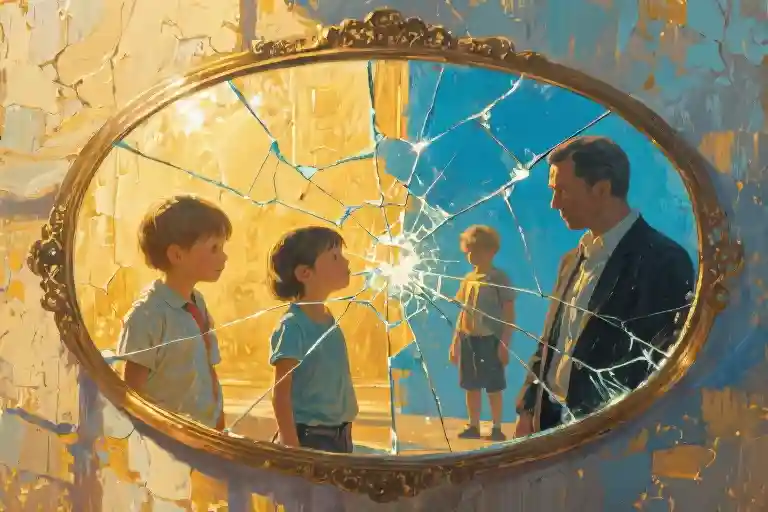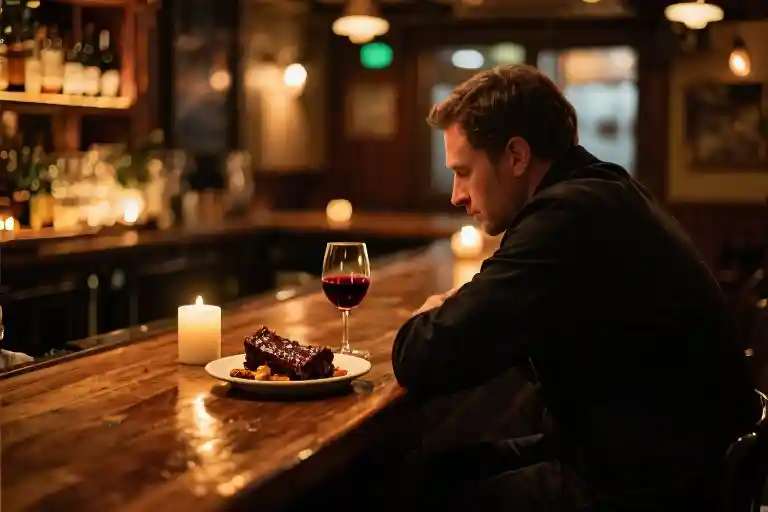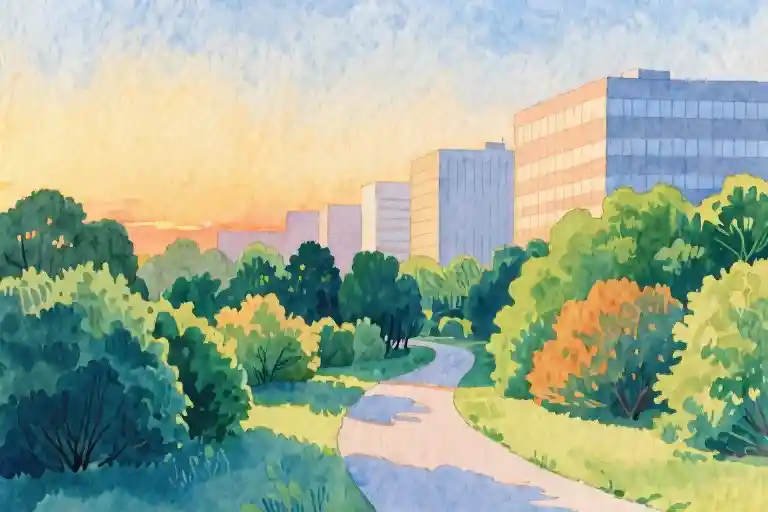No one ever prepares you for how much growing up will cost. Not in dollars or time, but in the quiet currencies of innocence, trust, and certainty—the kind of payment that leaves permanent marks on your soul. This isn’t the fleeting discomfort of skinned knees or teenage heartbreaks. This pain settles deeper, reshaping who you are at the molecular level.
You might notice it first in those unguarded moments: when a child’s earnest question makes your throat tighten unexpectedly, or when you catch yourself hesitating before extending trust where your younger self would have leapt without thought. The awareness creeps in gradually—that every lesson life engraves upon you comes with an invisible receipt, itemizing what you’ve surrendered to earn it.
The textbooks and motivational speakers never mention this part. They celebrate the resilience you gain but stay silent about the wide-eyed wonder you lose. They applaud your hard-won wisdom while ignoring the hollow where naive certainty once lived. Yet here you are, holding both realities—the gratitude for how far you’ve come, and the quiet grief for what got left behind.
This duality lives in the small hours. When you admire your newfound strength but miss the days when vulnerability didn’t feel dangerous. When you appreciate your discernment but ache for the version of you who believed promises without scanning for loopholes. Growth isn’t a simple exchange where pain deposits wisdom into your account; it’s an alchemical process that permanently alters your emotional DNA.
What makes this transformation particularly disorienting is its irreversible nature. Unlike physical wounds that heal cleanly, these emotional sutures remain tender to the touch. You can’t unlearn the betrayal that taught you caution. You can’t resurrect the idealism that hardship tempered. The childhood friends who drifted away take pieces of your history with them, leaving jagged edges no adult friendship can quite match.
Yet within this paradox lies an unexpected grace. The capacity to hold both gratitude and grief isn’t weakness—it’s emotional maturity in its purest form. It means you’re learning to navigate life’s complexities without resorting to emotional shortcuts like cynicism or denial. That tension between what you’ve gained and what you’ve lost? That’s the hallmark of someone growing authentically, without numbing themselves to the cost.
Perhaps this explains why certain songs from your teenage years still gut you decades later, or why helping a younger colleague navigate their first professional disappointment feels strangely personal. These moments aren’t nostalgia—they’re evidence of how thoroughly your past selves remain woven into your present. The version of you that believed in fairy-tale endings didn’t disappear; she simply handed the reins to someone wiser but less whimsical.
This ongoing conversation between who you were and who you’re becoming might be growth’s greatest gift—if you allow it to be. The pain of maturation isn’t something to outrun or conquer, but a companion that keeps you honest about life’s beautiful, brutal exchange rate. The losses matter precisely because they prove you loved, trusted, and hoped deeply enough for their absence to leave marks.
So when the ache for simpler days surfaces unexpectedly—between meetings, during a commute, while folding laundry—don’t dismiss it as sentimentality. That pain is the receipt proving you paid attention while life was teaching its hardest lessons. And like all valuable transactions, the cost was always part of the point.
The Price of Growth: What Gets Quietly Taken Away
Growth wears many disguises. It comes dressed as promotions and milestones, but underneath those celebratory garments lie the raw, unspoken losses we rarely acknowledge. The kind that don’t make it into graduation speeches or Instagram captions. These aren’t temporary setbacks – they’re fundamental shifts in how we experience the world.
The Death of Childhood Magic
Remember when fireflies were actually fairies? When adults knew everything, and promises were unbreakable? That crystalline belief system shatters piece by piece. You don’t notice the cracks until you’re standing in the rubble of your first major disillusionment – maybe when you realized Santa’s handwriting looked suspiciously like Mom’s, or when you caught your hero lying through their teeth.
This loss of innocence isn’t just about mythical creatures. It’s the erosion of that delicious, unexamined trust in life’s basic goodness. The moment you understand people (even wonderful ones) will disappoint you. That institutions fail. That happily-ever-after requires maintenance. The transition leaves phantom pains – especially when you watch children experience the wonder you can never quite recapture.
Trust’s First Fracture
There’s before and after your first real betrayal. Before, trust flows like tap water – abundant, automatic. After, you find yourself hesitating at the faucet. Maybe it was a friend who weaponized your secret, a partner who crossed lines, or a mentor who took credit for your work.
That initial rupture changes your emotional architecture. You start noticing exit routes in relationships. You practice speeches for hypothetical letdowns. Even when you choose to trust again (and you should), it’s now a conscious decision rather than an instinct. The loss here isn’t just about that particular person – it’s the death of your ability to love with unguarded abandon.
The End of Hand-Holding
Growth means outgrowing your training wheels. No one warns you how terrifying it feels when the stabilizing hands finally let go. That first apartment lease you signed alone. The medical form listing you as next-of-kin. The day you realize you’ve become the adult other people lean on.
These milestones arrive without ceremony. Suddenly, you’re making high-stakes decisions with no backstop. The safety net dissolves, and the terrifying truth emerges: adulthood means being the person who figures things out, even when you’re just as scared as you were at five. The comfort of passing responsibility upward disappears forever.
The Paradox of Progress
Here’s the secret no growth guru mentions: advancement requires surrender. To gain wisdom, you sacrifice blissful ignorance. To develop resilience, you forfeit the luxury of falling apart without consequences. Every skill mastered means abandoning who you were before you knew better.
These losses don’t invalidate your growth – they’re the tuition you paid for it. Recognizing them isn’t weakness; it’s emotional integrity. Because only when we acknowledge what’s gone can we fully appreciate what’s been gained, and decide whether the exchange was worth it.
The Bittersweet Truth: Grieving Who You Used to Be
Growth wears many disguises. Sometimes it looks like resilience after heartbreak. Other times it takes the shape of quiet wisdom when life doesn’t go as planned. But beneath every transformation lies an unspoken truth—becoming who you’re meant to be means saying goodbye to who you once were.
Psychology calls this process ‘mourning the former self,’ a legitimate developmental stage often overshadowed by society’s celebration of progress. The grief you feel isn’t regression; it’s recognition. That pang when you remember how easily you trusted? The wistfulness for simpler days? These aren’t weaknesses—they’re evidence you’ve lived deeply enough to know what’s been lost.
Consider Emma, a nurse who shared her story anonymously: “I miss the version of me who cried at sad movies instead of calculating mortality rates. Last week I caught myself explaining death to a four-year-old with clinical precision, and later I sobbed in my car—not for the patient, but for the girl I was who believed in magic bandaids and happy endings.”
Her experience mirrors what researchers term ‘ambiguous loss’—the mourning of intangible changes like lost innocence or altered worldviews. Unlike concrete bereavement, these transformations leave no grave to visit, no rituals to perform. Yet their impact lingers in the quiet moments: when you instinctively flinch at promises that once delighted you, or when nostalgia hits during a childhood song.
This duality holds a profound revelation: wisdom casts shadows. Every lesson that makes you discerning also makes you wary. Every survival skill that protects you might also isolate you. The same experiences that grant perspective often steal spontaneity. Recognizing this paradox isn’t ingratitude—it’s emotional integrity.
“Light cannot exist without shadow,” wrote Jungian analyst James Hollis, “and wisdom cannot exist without honoring what it eclipses.” Herein lies the permission slip you’ve been waiting for: You’re allowed to treasure your hard-won insights while tenderly missing the parts they replaced. The you who believed in fairy tales wasn’t foolish—that capacity for wonder became the foundation for your current courage. The you who loved recklessly wasn’t naive—that openness became the template for your present boundaries.
Practical integration begins with simple acknowledgments:
- When nostalgia surfaces, pause and name what’s being remembered (“This song reminds me of when I thought love was enough”)
- Create transitional rituals, like writing annual letters to your former self
- Reframe losses as exchanges (“I traded blind trust for discernment”)
The healthiest growth makes room for this ongoing conversation between who you were and who you’re becoming. Because maturity isn’t about outgrowing your past selves—it’s about carrying them forward with compassion, like well-loved books you’ll always revisit but no longer live within.
Moving Forward With What You’ve Lost
Growth isn’t about replacing who you were—it’s about learning to carry all your previous selves with compassion. That first moment when you realize childhood magic doesn’t exist. The friendship breakup that taught you not everyone stays. The career disappointment that shattered your illusions about meritocracy. These aren’t just lessons; they’re emotional landmarks where parts of yourself got left behind.
Write That Unsent Letter
Psychologists call this “symbolic closure.” Find a quiet hour to write to your past self—the one who hadn’t yet learned these painful truths. Tell them:
- What you wish they’d known (but are glad they didn’t)
- How their innocence protected you until you were strong enough
- Which of their qualities you’ve deliberately preserved
“Dear 22-year-old me, your insistence on seeing good in people wasn’t naivety—it was courage. I’ve had to become more discerning, but I still use your heart as my compass…”
This isn’t about dwelling. It’s about acknowledging that every version of you contributed something essential.
Designate Annual Reflection Time
Mark one day yearly (birthdays work well) for intentional remembrance:
- Review artifacts: Old photos, journals, or saved mementos
- Name the losses: “This was the year I stopped believing work friendships are unconditional”
- Honor the gains: “But I learned to set boundaries without guilt”
Like visiting gravesites, this ritual contains grief within defined parameters, preventing it from leaking into everyday life.
The Protection Trap
Here’s where most stumble—confusing emotional armor with maturity. Watch for:
- Cynicism masquerading as wisdom: “All relationships eventually fail” isn’t insight—it’s unprocessed hurt
- Avoidance pretending to be growth: Never dating again isn’t healing, it’s surrender
- Numbness sold as strength: Feeling less isn’t evolving—it’s retreating
True resilience means keeping your heart’s door ajar even after seeing what can walk through it. As poet Ocean Vuong writes, “The most dangerous thing is to love without a guarantee.”
Integration Over Replacement
That wide-eyed college graduate. The heartbroken 30-year-old. The betrayed employee. They aren’t failures—they’re your foundation. Growth isn’t outgrowing; it’s expanding your capacity to hold contradictions:
- You can be street-smart and occasionally nostalgic for gullibility
- You can spot red flags while staying open to green ones
- You can know pain exists and still lean toward trust
This is how we avoid the spiritual equivalent of scar tissue—thickened places that lose sensation. The goal isn’t to stop getting hurt; it’s to stop being surprised that it happens.
Your Evolving Toolkit
Practical ways to balance wisdom with warmth:
- The 10% rule: When meeting someone new, consciously give them 10% more trust than your experience suggests
- Emotional bookmarks: When jadedness creeps in, revisit an old letter or photo to reconnect with your softer self
- Permission slips: Literally write “Today I allow myself to __ like I used to” (e.g., get excited about small things)
These aren’t regression—they’re course corrections against the natural drift toward defensiveness.
The Paradox of Protectedness
Here’s the secret no one mentions: Excessive self-protection often backfires. That colleague who “never gets upset” becomes the office doormat. The perpetually single friend grows lonelier than the serial dater. Like immune systems, emotions need regular exposure to stay healthy.
Your past selves weren’t weaker—they were practicing essential skills:
- Unfiltered joy strengthens your capacity for happiness
- Unchecked optimism fuels perseverance
- Unprotected love teaches you what real connection feels like
Discard the behaviors that harmed you, but preserve the qualities that made those behaviors meaningful.
Closing Thought
Those pangs when you remember earlier versions of yourself? They’re not regret—they’re love across time. Keep all your selves close: the dreamer, the heartbroken, the disillusioned, the reborn. Let them whisper to each other like elders around a fire, comparing notes on how far you’ve come.”
Every Past Version of You Mattered
The chair creaks as you lean back, staring at ceiling cracks that form constellations only midnight thoughts can decipher. Your fingers trace the edges of phone screens filled with old photos—images of someone who looks like you but feels galaxies away. That version didn’t know about layoffs that arrive on rainy Tuesdays, about friendships that dissolve like sugar in lukewarm tea, about love letters that eventually yellow at the corners.
Growth isn’t linear archaeology where new layers simply cover the old. It’s mosaic work—every shattered piece of who you were still glitters in the foundation of who you’re becoming. The childhood optimism you ‘outgrew’? It fuels your resilience when projects fail. The trust you thought was naivety? It’s why you still dare to connect despite knowing betrayal. Those losses weren’t erased; they transformed into materials for building depth.
Three ways to honor your evolution without abandoning your past:
- Create transitional rituals: Light a candle on birthdays for former selves, acknowledging what each version taught you
- Practice parallel gratitude: “I’m thankful for my current boundaries and I honor my past openness”
- Collect emotional artifacts: Keep that cringe-worthy teenage journal; its earnestness is antidote to adult cynicism
When nostalgia arrives like uninvited rain, don’t dismiss it as weakness. That ache is evidence you’ve lived deeply enough to accumulate layers. The healthiest among us aren’t those who’ve stopped missing—they’re those who’ve learned to whisper I see you to their ghosts while still facing forward.
Tonight, try this: Open your Notes app and complete this sentence: “Dear ___year-old me, what I most want you to know is…” Don’t edit. Don’t judge. Just let the words flow like conversation between old friends at a café where time doesn’t matter.
Because here’s the secret no productivity guru will tell you—real adulthood isn’t about outrunning your past. It’s about developing the emotional dexterity to hold all your ages in one heart, like Russian nesting dolls that finally stopped competing for space.





